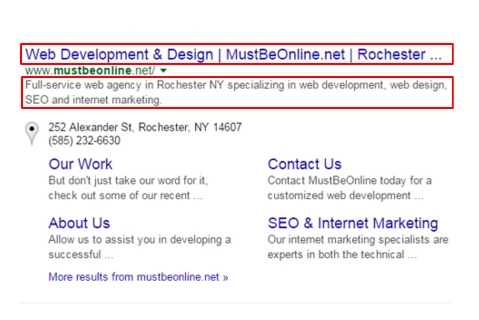- Resources /
- Digital Marketing
- / Essential Keyword Optimization Locations
Essential Keyword Optimization Locations

Best practices for search engine optimization and content marketing are constantly evolving. With seemingly endless improvements to technology and user experience, it has become difficult to stay ahead of the curve and maintain online visibility using the most up-to-date digital marketing tactics.
However, one SEO technique has withstood the test of time and remains an important aspect of any content strategy: keyword optimization.
Although keywords have been crucial from the very beginning of SEO, their value has changed dramatically. Gone are the days where simply using handfuls of keywords throughout your site would increase rankings. In fact, major search engines have become so advanced that over-using keywords now has a negative impact on search performance.
But with the proper implementation of keywords in the correct locations and frequencies, you can establish long-term improvements to your search rankings and overall online presence.
Positive Effects of Proper Keyword Optimization
- Search Results Listing - Your website's snippet of information that appears in search results is a must-have location for keywords. It's essential to accurately describe the content of your web page with common key terms used to find it. This provides searchers with instant relevance to what they're looking for while giving them confidence your page will meet their needs.
- Title Tag - The link to your web page shown in the search results. This is a perfect spot to provide a simple description of exactly what your page offers that matches the searcher's intent and grabs their attention. Including product-related and location-based keywords tells the search engine important details about your business, which gives it trust in your site's content — ultimately helping to boost rankings.
- Meta Description — The short paragraph of copy appearing below your website's link within the search results.This presents an excellent opportunity to give searchers informative and useful content about your product or service. With engaging writing that matches what the user is looking for, you can generate more interest in your search listing while making dramatic improvements to your SEO click-through-rate.
- Search Ranking Algorithm - Keyword optimization continues to be a significant ranking factor used by search engines to identify the relevance and authority of web pages. By using keywords in the right locations and in the correct amounts, you can increase rankings by proving to search engines that your content will match the searcher's needs. Keyword analysis algorithms performed on each of your site's pages determine if the content will be useful to a searcher's query based on its quality and comprehensiveness.
- User Experience - The correct placement of keywords helps to improve any SEO strategy because it creates a better search experience for the user. Putting accurate, detailed keywords in the right spots will show searchers that your site matches what they're trying to find. Keywords within your search listing are proven to entice quality clicks by interested customers, while key terms in the content of your web page convinces visitors you can meet their needs and gives them a sense of trust in your business.
Optimal Keyword Locations
Balanced keyword usage in recommended areas of your website content include:
- 1x in title tag element
- 1x in meta description
- 1x in page headline
- 1x in subheadline
- 2-3x in body content
- 1x in URL
- 1x in image file name
- 1x in image alt tag element
In Conclusion
Keywords are only a small piece of the greater SEO puzzle, but their correct implementation is necessary groundwork for better search performance.
Need help with keyword research, keyword optimization, and SEO best practices? Contact our digital marketing experts for a full analysis of your website's search performance and strategies for improvement.
<< Back to list page Learn More






